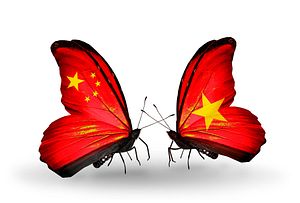Even while Vietnam and China continue to trade barbs over the placement of a Chinese oil rig in Vietnam’s exclusive economic zone (EEZ), Chinese State Councilor Yang Jiechi arrived in Hanoi Wednesday for a visit. Yang’s meetings with Deputy Prime Minister and Foreign Minister Pham Binh Minh as well as Prime Minister Nguyen Tan Dung marked the highest-level exchanges between China and Vietnam since the crisis began in early May.
Minh pointed to Yang’s visit itself as a sign of progress. “Our meeting … demonstrates that the two parties and states of Vietnam and China have the desire for dialogue to settle the current complicated situation in the East Sea,” the Associated Press quoted Minh as saying. Indeed, both sides expressed willingness to get the relationship back on track, but there was no indication that either China or Vietnam were willing to take concrete steps to break the current impasse over the Chinese oil rig.
According to Xinhua, Yang Jiechi assured his Vietnamese counterpart that China “attach[es] great importance to China-Vietnam relations from a strategic long-term perspective” and seeks “a healthy and stable comprehensive strategic cooperative partnership.” However, he stood firm on China’s position that Vietnam is the one threatening the relationship. China, Yang said, will continue to “take all necessary measures” to protect both its sovereignty and the continued operation of the oil rig.
Yang’s remarks were backed up by comments from a Foreign Ministry spokesperson on Wednesday. Hua Chunying summarized Yang’s message for reporters: “The most urgent thing is for Vietnam to stop its interference and harassment, stop hyping up the issue and stop whipping up disagreement to create new disputes, and properly deal with the aftermath of the recent serious incidents of violence.”
Yang suggested that Vietnam and China should approach the current issue by avoiding actions that would “amplify, complicate, and internationalize” the dispute. China recently submitted a position paper to the United Nations, saying it was an attempt to combat Vietnam’s smear campaign against China. Yang’s comments show that the “internationalization” of territorial disputes continues to be a major concern for China. In fact, Ruan Zongze, the vice president of the China Institute of International Studies, told China Daily that a goal of Yang’s visit was to “clarify [China’s] stance” so Vietnam realizes it “will never gain the upper hand if it seeks an international lawsuit.”
Echoing Yang’s remarks, there was a similar mix of friendship and criticism in remarks from the Vietnamese side. Vietnam’s Prime Minister Nguyen Tan Dung tried to reflect on a happier time in China-Vietnam relations. “The Vietnamese Party, State and people always remember and are grateful for the great support and help of China,” Dung said, according to Vietnam News Agency. Dung also reminded listeners about Li Keqiang’s 2013 visit to Hanoi, which seemed to promise a new era of cooperation.
However, Dung repeated Vietnam’s stance that China’s oil rig violated Vietnamese sovereignty and threatens regional stability. He requested that China remove the rig. Even while promising to work with China to prevent escalation, Dung also promised that Vietnam will continue to defend its sovereignty, although only through peaceful means.
Yang’s visit was for a meeting of the China-Vietnam Steering Committee on Cooperation, which normally would involve a full agenda on the whole range of bilateral issues. Given the tensions, though, signs of cooperation on other issues were scarce. Prime Minister Dung did request that the two sides push forward with talks to further cooperation on economic issues, including investment and tourism. But this is hardly likely to happen in the short-term, especially after anti-Chinese riots sparked a mass evacuation of Chinese citizens from Vietnam. China is not sure about the security of its existing investments in Vietnam, much less expanding those ties.
China and Vietnam agreed to work toward a long-term solution to the maritime disputes. In the meantime, they promised to work together to prevent the escalation of disputes and not to take actions that raise tensions. This sounds good on paper, but it will likely mean nothing in practice. Both sides blame each other for unilaterally threatening the status quo, and see their own actions as a proper and necessary response.































